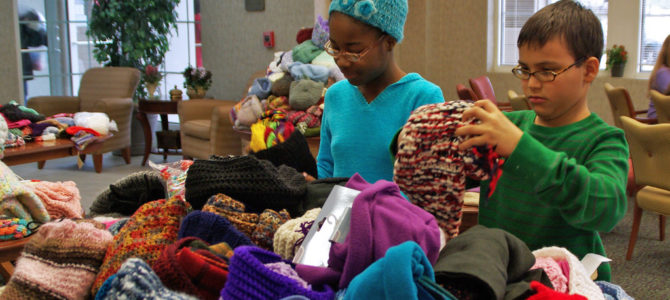Yesterday, many of the major media figures on the right were talking about another insider whistleblower who was the source of a Project Veritas report on Google’s plans to prevent another “Trump situation” in 2020, including footage of an executive making some troublesome comments. The executive’s comments defending herself are here.
It was yet another example of the problems these large Silicon Valley entities are facing as we enter into 2020 campaign season in earnest, and deserves attention in the broader context of accusations of partisan bias. But the more important story, believe it or not, was about a knitting website.
Don’t laugh. Ravelry, a crochet- and knitting-focused site that boasts millions of users, is not just an online network built around the practice, but a source for patterns, a place knitting groups can share their work, and more. It is a combination of a community and a sales platform, one where users of all political walks of life have invested time and effort, and where many stay-at-home moms and hobbyists have developed work — some over more than a decade — and depend on the side income.
In the past, it had allowed all sorts of material that was political. Where do you think all those pink p-ssy hats came from? Tens of thousands of them came from Ravelry.
Those still can, along with anything that is anti-Trump. But Ravelry announced yesterday that they would ban all pro-Trump material from the site, in a statement that was brutally accusatory of all his supporters.
Ravelry has banned support for President Trump and his administration on their wildly popular fiber arts membership website, because ‘support of the Trump administration is unambiguously support for white supremacy.’
Ravelry’s unapologetically discriminatory policy does not mince words. ‘New policy: Do not post in support of President Trump or his administration,’ reads the title of the document detailing their intention to silence the artists and presumably advertisers with whom the social media site’s owners disagree.
‘We cannot provide a space that is inclusive of all and also allow support for open white supremacy,’ it says, in Orwellian prose. ‘Support of the Trump administration is undeniably support for white supremacy.’
A number of other fiber arts businesses and online networks quickly expressed their support for the incendiary Ravelry statement…
Ravelry’s advertising guidelines boast 7 million users in “nearly every country in the world” reaching 5 to 6 million daily page views. SimilarWeb ranks the site first in the hobbies and leisure crafts category, and estimates 13.59 million monthly visits, 56 percent of which are from the United States. As this article was being written, 5,204 “revelers” were surfing the site. There, they share, buy, and sell patterns for everything from crocheted shawls to felted sculptures with, of course, the site’s owners taking a cut of the financial transactions.
Now, of course Ravelry’s within its rights to do this. It would be within the rights of any platform or community to do this. Any private community could legally make the same announcement tomorrow if they wanted.
But we should pause to appreciate how incredibly toxic this behavior is, and the negative ramifications for our culture and our communities. Some of the more foolish analysts are apt to argue that the biases of digital are just a representation of grievance culture, unimportant to normal Americans.
Developments like this show how wrong they are. This is not a conversation limited to activists or media members when families are talking about mom losing her income and her friends.
Knitting communities often bring together people with very different politics. Some of our writers who have used Ravelry for years experience it as a community that exists outside of the political arena, one that lowers the walls between factions.
A step like this raises those walls back up, and while there is some backlash, the size of Ravelry as a player in the market means there isn’t an obvious “just build your own” dynamic. Conservative pattern makers who paid money and built a following are being booted from the community they helped build, losing content they paid for, and find themselves in an instant sealed out of the single biggest market for their creative wares.
This decision is not just about cutting off equal access to markets, it’s about sealing the walls of discourse. We are fond of citing Andrew Breitbart’s line that politics is downstream from culture. The question is whether that can possibly remain true in an era of comprehensive digital wokeness.









